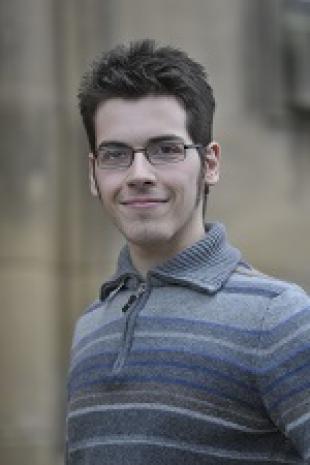EngD Thesis Title: Numerical study of floating wind turbines: hydro- and aero-mechanics
Company/Organisation: EDF (France)
Industrial supervisor: Christophe Peyrard
Academic supervisors: Prof David Ingram (University of Edinburgh), Prof Atilla Incecik (University of Strathclyde), Dr Lars Johanning (University of Exeter)
Programme start: January 2012
Industrial Project start: September 2013
Educational background
I hold a M.Sc.(Eng) in Naval Architecture & Marine Engineering from the University of Trieste (Italy).
What attracted you to studying with IDCORE?
I felt like an industrial EngD would suit best my professional development wills. While scoping for workplaces after University, the dilemma was: “How can I apply my skills in the research field, without limiting my choices within the academia?” I was looking for a “hands-on” researcher experience. IDCORE appeared to be tailor-made for it.
What attracted you to offshore renewables industry? What aspects of the industry do you find most inspiring, interesting or important for the future?
Signs of my interest in sustainability matters such as energy and pollution appear within essays dating back to secondary school! While progressing with my engineering studies, I kept eyeing the development of sustainable technology until I found it crossing paths with Naval Architecture during my ERASMUS at the University of Southampton. It was within my individual project conducted there on wave energy (leading to a conference paper published later on) that I found out the excitement of applied research...
Main responsibilities and challenges as a Research Engineer
The EngD programme requires us to conduct academic level research, implying all related commitments such as strategic thinking, organisation of supervision and milestone delivery. Much like employed research engineers, our studies are also asked to fit into our company’s research schedule; much of the thrill naturally resides in striking the correct balance between the academic and the corporate side. In general, the sponsor companies welcome the research engineer as part of their operating staff, meaning that he may also be able to pick extra engagements: tutoring, coordination, commercial, planning, liaison, et cetera. These activities are sometimes quite brain-stretching for a doctoral student to carry out on top of his research, but the reward is great.
What is your biggest achievement to date?
I would say setting up the first Code_Aster -based dynamic moorings simulation ever! Jargon-free, I have successfully banged my head against French technical abbreviations for a few months.
What ambition would you like to fulfil as a Research Engineer?
This is a truly difficult question, as I tend not to univocally channel my ambitions. I shall say building a diverse professional experience portfolio and keep enjoying my everyday work as much as I do now.
Experience with IDCORE
The keyword should be “enthusiasm”. I have never seen a motivation gap yet, either among students (through accurate candidate selection I guess), even while sailing through hard times, or lectures. I will spend a few words on the initial Edinburgh-based taught part, which was really intense: this sort of master’s degree packed in a few months brought us to a completely different level, as new technical, organisational, and team working capabilities started to manifest. As a transferable skills lecturer said, we had been turned into bionic men...
Do you have any other comments, interesting facts or stories to share?
I’ll leave this as a legacy for the next cohorts: when team building sessions are organised, propose paintballing. You will not regret it!







